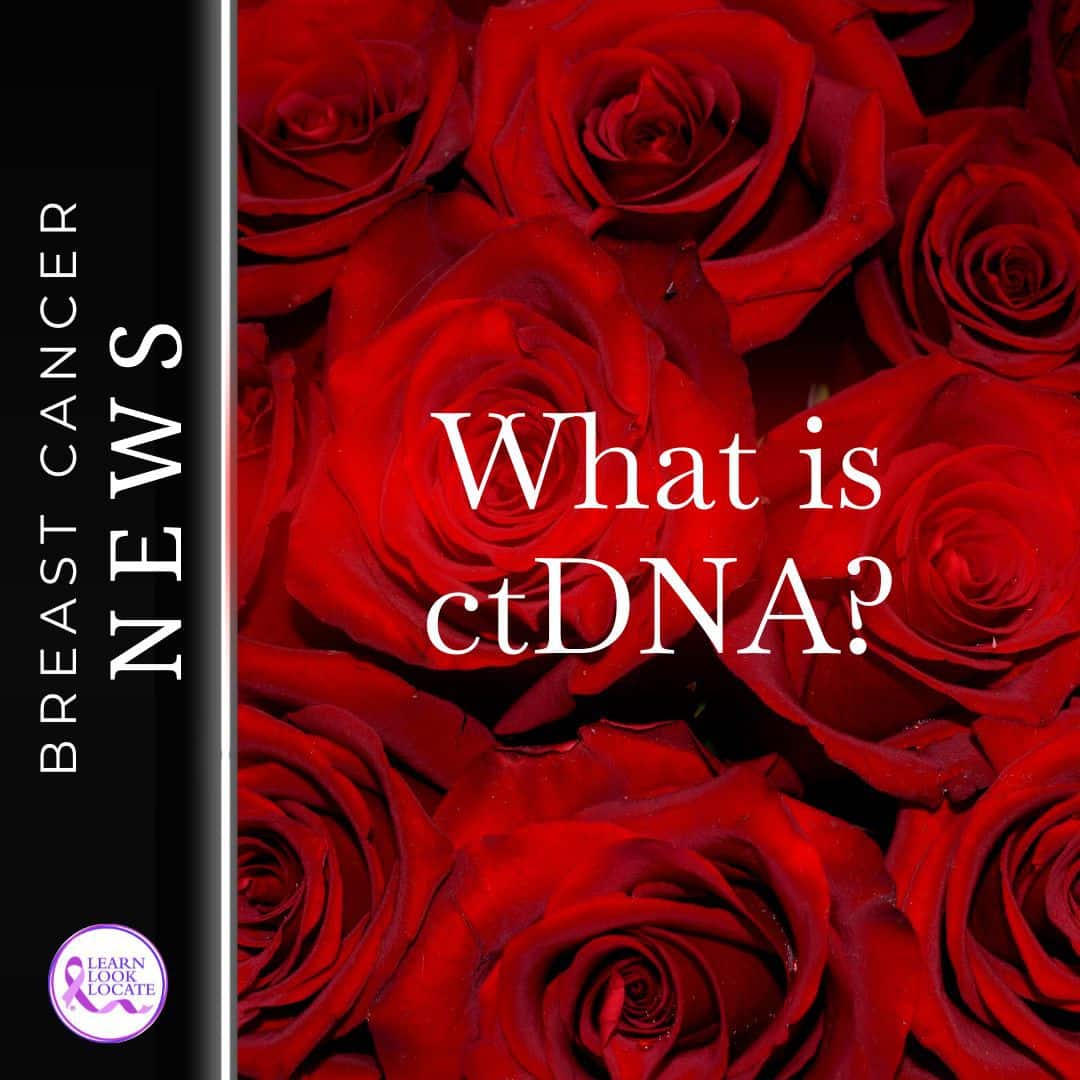
How ctDNA testing can help inform breast cancer management?
About ctDNA
- DR. C.H. WEAVER M.D., Medical Advisor for Learn Look Locate
Cancer is caused by genetic mutations, and these mutations can be detected by measuring circulating tumor DNA, or ctDNA, in the blood. Detection of ctDNA allows for personalized cancer surveillance based on an individual’s unique set of cancer mutations. Circulating tumor DNA is 150–200-base-pair fragments of DNA, which originate from cancer cells and are present in the bloodstream or other body fluids. ctDNA is different than cell-free DNA (cfDNA) which is ALL the DNA in the bloodstream including germline DNA and tumor DNA. ctDNA is the portion of cfDNA that is derived specifically from the cancer.
How is ctDNA used for the management of early-stage cancers?
Across all stages of surgically removed cancer, detection of ctDNA following surgery is a strong predictor of cancer recurrence. For example, measurement of ctDNA is performed routinely in early-stage colon cancer and can help clinicians decide when to intensify therapy in certain situations, and conversely, the absence of ctDNA can provide an opportunity to minimize surveillance or avoid adjuvant treatment. In breast cancer the most immediate application of ctDNA monitoring for MRD will be for the early detection of cancer recurrence and immunotherapy monitoring.
As many as 30% of early-stage breast cancers recur and recurrence surveillance currently relies on imaging techniques like computerized tomography (CT), magnetic resonance imaging (MRI), and positron emission tomography (PET). These imaging tools are limited in their ability to detect MRD – ctDNA can be detected in the blood long before it appears on a CT or MRI scan and has the potential to change how breast cancer is managed.
The Centers for Medicare & Medicaid Services has determined that Signatera’s molecular residual disease (MRD) test designed to detect circulating tumor DNA, or ctDNA, has met coverage requirements for adjuvant and recurrence monitoring in patients with stage IIb or higher breast cancer. Medicare’s coverage applies across all breast cancer subtypes including HR-positive, HER2-positive, and triple-negative breast (TNBC) cancers.
Dr. John Strickler of Duke University recently conducted a webinar to explain ctDNA and entertain patient questions.
About Signatera
Signatera is a custom-built ctDNA test for treatment monitoring and molecular residual disease assessment in patients diagnosed with cancer. The Signatera test is personalized and tumor-informed, providing each individual with a customized blood test tailored to fit the unique signature of clonal mutations found in that individual’s tumor. Signatera is intended to detect and quantify cancer left in the body, at levels down to a single tumor molecule in a tube of blood.
Copyright breastcancerconnect 2023.
